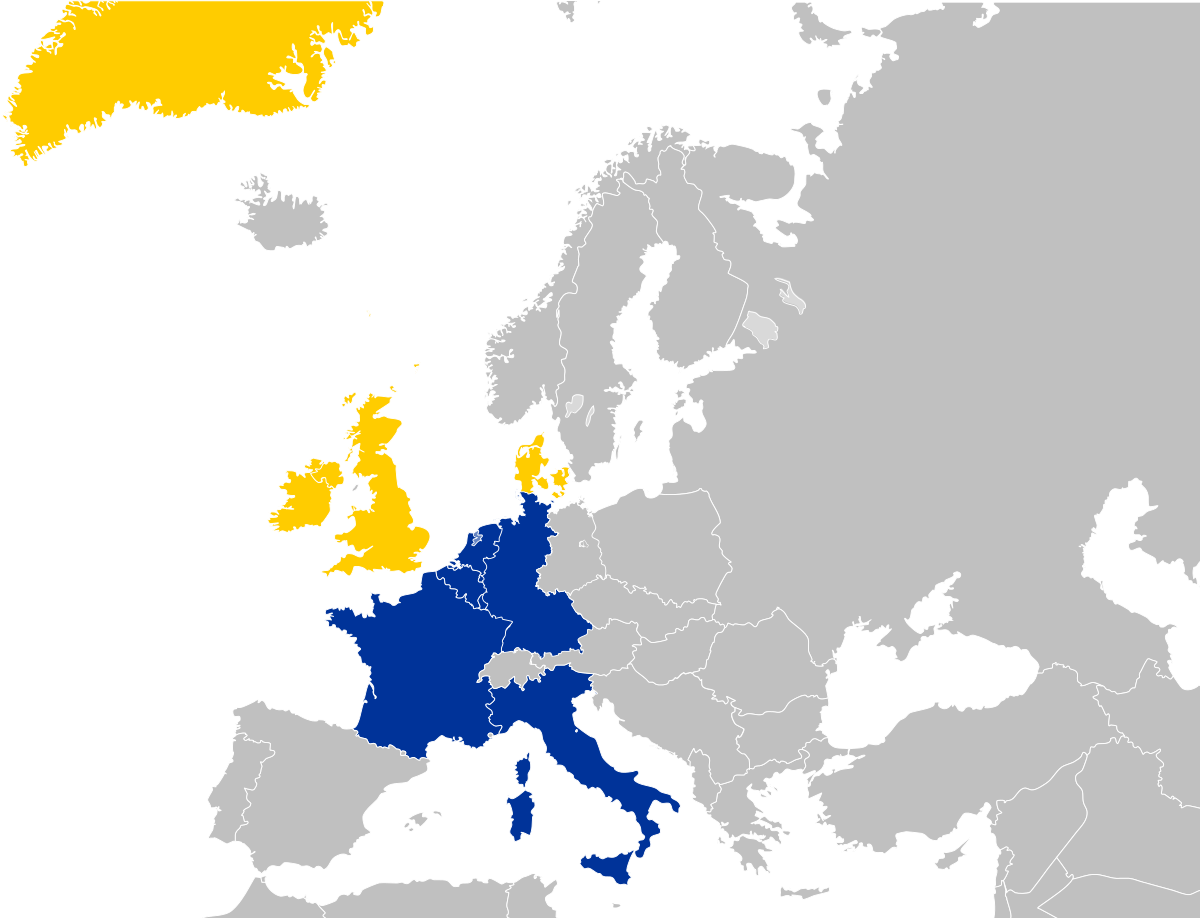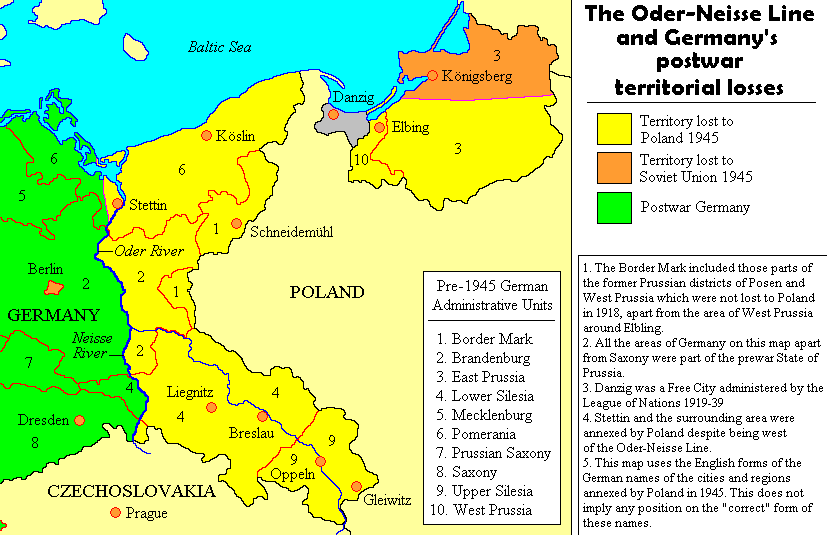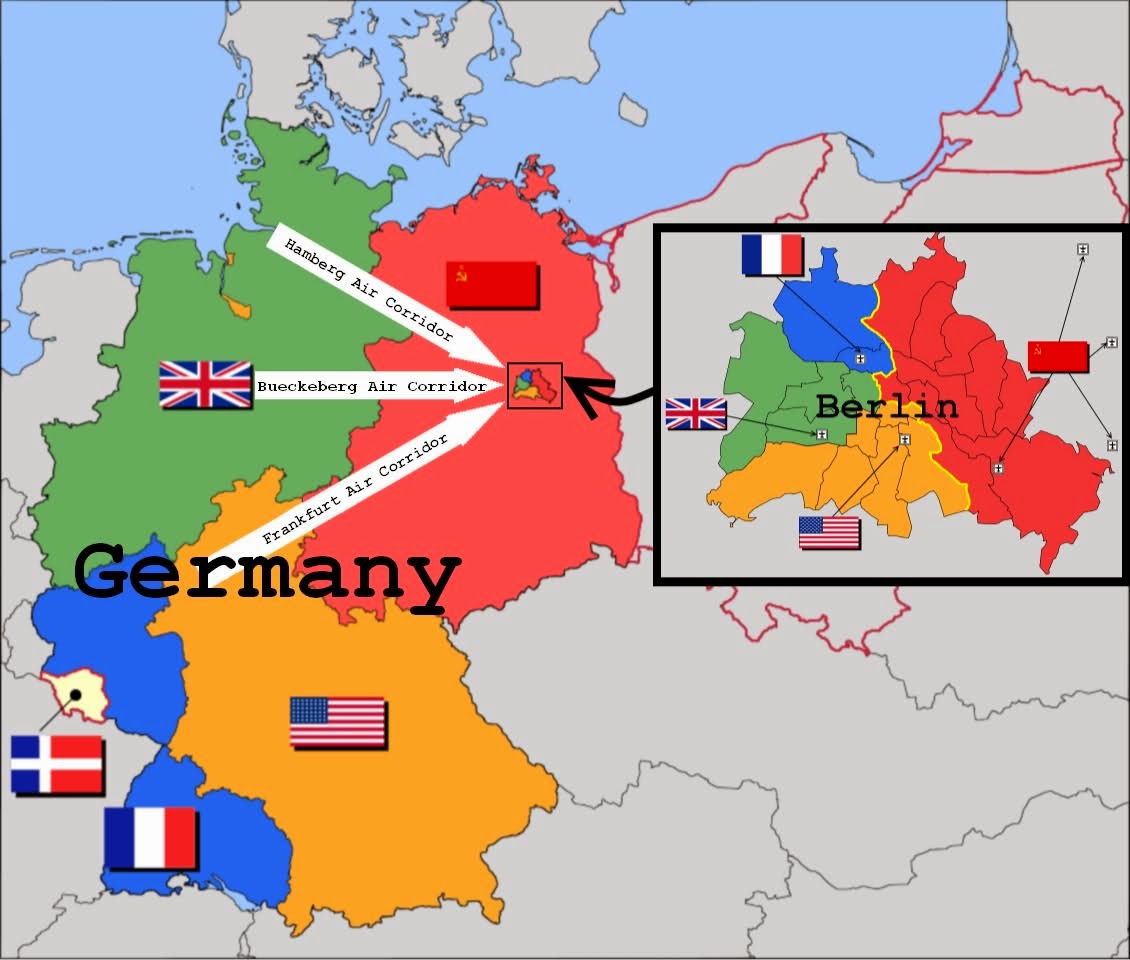How Great Britain fell for a confidence trick
Two decades earlier, in the 1960s, when Great Britain twice sought entry into then the EEC/EC, the historian Sir Arthur Bryant had issued an unheeded warning:
“Once in the common market, we shall be a minority in an organization in which the decisions of the majority will have the power to bind the minority, not only for a few years but theoretically for all time.”
Sir Arthur Bryant could not have chosen a more apt word than “bind”. Although Great Britain was twice saved from her own folly by the French President Ch. de Gaulle in the 1960s, however, in 1973 she not so much joined as bound herself to the common market, and agreed to be bound by the 1957 Treaty of Rome.[i] Even at that time, the founders of the common market knew – but apparently Great Britain did not – that the common market (today the European Single Market) was not a club to join or a free trade area (the EFTA) with which to associate, but a superstate in the making. Its founders were in no doubt about this, even if the British politicians were unaware of – or unwilling to face up to – the ultimate goal of the founders. Robert Schuman, while preparing the European Coal and Steel Community in 1950, had said:
“These proposals will build the first concrete foundation of the European Federation”.
Article 189 of the 1957 Treaty of Rome is quite clear about what was involved:
“Regulations […] shall be binding in every respect and directly applicable […].” “Directives shall bind any Member State […].” “Decisions shall be binding in every respect […].”[ii]
Unfortunately, no more people read the 1957 Treaty of Rome than had read Adolf Hitler’s Mein Kampf before WWII (after the war it was too late), and many who should have known better-accepted assurances that no loss of sovereignty was involved in acceding to the EEC. Looking back, we can just regret that they did not know better about the issue. After a quarter of a century, during which the EEC became transformed firstly into the EC and then the EU, experience ought to have taught us what the anti-marketers failed to teach.[iii]

We can read, for instance:
“Initially I thought like everybody else, that we had joined a common market, and what could be nicer and more friendly and sensible and economically wised to do, but since then in 1975 when we had the vote to remain in that, so we were told, it has become something more than a common market, it than became, a few years later, a European Economic Community than a European Community, it’s now the European Union, with all kinds of controls and restrictions, regulations and we are faster approaching by this new Constitution, something that the French have already named potentially the United States of Europe and I am not at all sure that that’s what I and many others voted to join back in 1975” [Delphine Gray-Fisk, retired airline pilot, a British citizen].
“We have lost one hundred percent control over our environment including health and safety regulations, we have lost near enough hundred percent control over our fishing, we have lost hundred percent control over our farming and we have lost hundred percent control over our trade policy and that last is of particular significance when you consider that Britain is the 4th largest economy in the world and we do more trade than any other country in the world, by far” [Linsday Jenkins, author].
“So, what are the MEPs [Member of the European Parliament] for? Well, I will tell you, the MEP’s are here to vote and to vote often and to vote regularly, sometimes we vote up to 450 times in the space of 80 minutes. Now I have to confess, I do not know what is going on half of the time, I have not either read all of the documents, so massive, are they. Now it can be, that my fellow MEP’s down there are all Albert Einsteins and all absolutely understand what is going on, but I suspect that is not the case, in fact, it is rather like paying monkeys – because what happens is the civil servants draw up the lists and if it is vote No. 58 and the piece of paper say VOTE, YES you VOTE YES and if it is No. 59 and it says to VOTE NO you VOTE NO, it is an absolute false, it is a complete masquerade democracy” [Nigel Farage, the MEP, the UK Independence Party, later the leader of the Brexit].
“We are now living under a legal order. The 1972 European Communities Act was a one-off, not an ordinary treaty, but a new way of life. These are new constitutional powers. The British Parliament surrendered its sovereignty in 1972. European laws have overriding force with priority over our British laws… The articles on the supremacy of the British parliament are now only historical perspective – they are non-binding” [Judge Morgan.]
The plot to destroy the sovereignty of the Member States
What is the real nature and purpose of such kind of united Europe? It can be easily claimed that behind the respectable European mask is, in fact, a plot with the ultimate aim to destroy the real sovereignty (independence) of its Member States and to re-align the whole balance of power worldwide.[iv] It should be remembered that, strategically, Europe’s unification drive began at a time when the entire Atlantic Alliance was coming to grips with the relative decline of the United States both as a world economic power and as leader of the West. The European Union (the EU, est. 1992/1993) with its central motor, the French-German axis, became a new GP in global politics. Therefore, the USA is not anymore in a position to dictate and implement global policies like at the time of the Cold War. After the creation of the EU, the US administration seeks a multilateral action with the EU in several hot-spot areas of the conflicts in Europe as, for instance, ex-Yugoslavia or Ukraine.
America’s generosity to the world has reduced her riches and necessitated a serious reassessment of her global strategic commitment. Trade frictions between the US and West Europe have long been a reality and have moved from the agricultural sector into advanced technological areas. Doubts also grew about the reliability of the US “nuclear umbrella” protecting West Europe, and a subsequent reduction of the American forces and the withdrawal of the Russian forces on the Continent followed by the collapse of the Soviet Union has been paralleled by increasing calls for a solely European self-defense capability. The European army and the European police force already exist in more than embryonic form.
It has to be noted that for centuries it has been the British most basic right to vote in one hundred percent of the members of Parliament who govern their country or vote them all out if they do not perform.
“For instance, the basic principle that you can elect a new parliament and then you can have a new law, that is the call of the democracy and this call does not exist in the EU and it does not exist in the Constitution we are building now” [Jense Peter Bonde, Danish MEP].
The European unification as an umbrella for recovering of Germany as a Great Power
The Germans have had the idea that they are the inheritors of the medieval Holy Roman Empire of the German Nation and as such, they should try to rule Europe, it has going on from centuries and it still exists today right up to WWI, after Otto von Bismarck and WWII, from the Kaiser of WWI to Adolf Hitler in WWII. The same idea has dominated all through German history, that they are entitled to the right of full power over Europe and all Europe should be under their sway and they still think in the same direction today, especially being vehement power in the European Union. Here, it has to be clearly stressed: unified Germany after 1989 became once again a Great Power (GP) in global politics under the mask of the European Union!
 Meaning of the term Great Power(s) (GP) in global politics from the beginning of the 16th century onward refers to the most power and therefore top influential states within the system of the international relations (IR). In other words, the GP are those and only those states who are modeling global politics like Portugal, Spain, Sweden, France, the United Kingdom, united Germany, the USA, the USSR, Russia, or China. During the time of the Cold War (1949−1989), there were superpowers[v] as the American and the Soviet administrations referred to their own countries and even a hyperpower state – the USA, after the Cold War as it is called in the academic literature.[vi] A focal characteristic of any GP is to promulgate its own national (state’s) interest within a global (up to the 20th century European) scope by applying a „forward“ policy.
Meaning of the term Great Power(s) (GP) in global politics from the beginning of the 16th century onward refers to the most power and therefore top influential states within the system of the international relations (IR). In other words, the GP are those and only those states who are modeling global politics like Portugal, Spain, Sweden, France, the United Kingdom, united Germany, the USA, the USSR, Russia, or China. During the time of the Cold War (1949−1989), there were superpowers[v] as the American and the Soviet administrations referred to their own countries and even a hyperpower state – the USA, after the Cold War as it is called in the academic literature.[vi] A focal characteristic of any GP is to promulgate its own national (state’s) interest within a global (up to the 20th century European) scope by applying a „forward“ policy.
A term global politics (or world politics) is related to the IR which are of the worldwide nature or to the politics of one or more actors who are having a global impact, influence, and importance. Therefore, global politics can be understood as political relations between all kinds of actors in politics, either nonstate actors or sovereign states, that are of global interest. In the broadest sense, global politics is a synonym for a global political system that is „global universe of actors such as nation-states, international organizations, and transnational corporations and the sum of their relationships and interactions“.[vii]
After Germany was defeated in WWII, nobody thought that they stood much chance of recovery but they had a leader still, he was called Strauss and was a wise German of his day who thought that they have already tried war – three times and they were defeated each and every time, the last time – the worst of all, so he sought that in the European unification formation at that time a solution for the German getting back in both European and global arena was a right way. In other words, the umbrella of the European unification could provide for the post-war West Germany two benefits: 1) the unification, and 2) a Great Power (GP) status.

Nevertheless, what are the crucial characteristics of the GP? Originally, in the 18th century, the term GP was related to any European state that was, in essence, a sovereign or independent. In practice, it meant, only those states that were able to independently defend themselves from the aggression launched by another state or group of states. Nevertheless, after WWII, the term GP is applied to the countries that are regarded to be of the most powerful position within the global system of IR. Those countries are only countries whose foreign policy is „forward“ policy and therefore the states like Brasil, Germany or Japan, who have significant economic might, are not considered today to be the members of the GP bloc for the only reason as they lack both political will and the military potential for the GP status.[viii]
One of the fundamental characteristics and historical features of any member state of the GP club was, is, and will be to behave in the international arena according to its own adopted geopolitical concept(s) and aim(s). In other words, the leading modern and postmodern nation-states are „geopolitically“ acting in the global politics that makes a crucial difference between them and all other states. According to the realist viewpoint, global or world politics is nothing else than a struggle for power and supremacy between the states on different levels as the regional, continental, intercontinental, or global (universal). Therefore, the governments of the states are forced to remain informed upon the efforts and politics of other states, or eventually other political actors, for the sake, if necessary, to acquire extra power (weapons, etc.) which are supposed to protect their own national security (Iran) or even survival on the political map of the world (North Korea) by the potential aggressor (the USA). Competing for supremacy and protecting the national security, the national states will usually opt for the policy of balancing one another’s power by different means like creating or joining military-political blocs or increasing their own military capacity. Subsequently, global politics is nothing else but just an eternal struggle for power and supremacy in order to protect the self-proclaimed national interest and security of the major states or the GP.[ix] As the major states regard the issue of power distribution to be fundamental in international relations and as they act in accordance to the relative power that they have, the factors of internal influence to states, like the type of political government or economic order, have no strong impact on foreign policy and international relations. In other words, it is of „genetic nature“ of the GP to struggle for supremacy and hegemony regardless of their inner construction and features. It is the same „natural law“ either for democracies or totalitarian types of government or liberal (free-market) and command (centralized) economies.
It was a change of strategy from the aggressive war to the long-term friendly approach so that people begin to think that they are now nice people and they will gradually listen to their conversations and fall for their compliments. In that way, they will make that the French who historically hated the Germans will begin to like them, and that is exactly what happened with the process of the European unification after WWII. Instead of becoming aggressive as usual, the Germans went the other way so they finally were accepted by the French in the European Union as the leaders of further unification, they succeeded to develop the friendship with France, and the Germans and the French have been hand in hand in the EU ever since. However, behind such German-French reproaches were the creation of Germany as a new global GP as, in fact, the political, economic, and financial leader of the EU.
Germany from the very beginning of the Holy Roman Empire of German Nation (962) has always seen through every ruler, every leader the idea to conquer Europe by different means, but the ideas went further and that is why today they are not satisfied with the European unification as it stands – the European Union. Germany is trying to impose a new Constitution for the EU, which eventually if accepted by all the Member States will turn them into unitary units with no sovereign power of their own, no freedom, no law of their own, no parliaments of their own, they will become units of a superstate ruled over by Germany and France as its client state which does not really understand that French is only a tool in the hands of the Germans in their historical geopolitical projects of hegemony over Europe.
But Germany, could not have done such global geopolitical projects on their own, it was not sufficient money even to start WWI, the Kaiser was financed partly by the American banks. Furthermore, money from America, from the American-German sources, helped A. Hitler come to power, and one of the major’s families mentioned is the wealthiest in America – the Rockefellers, facts are that associate the family for helping A. Hitler to finance WWII, so the association of ideas is not just to turn Europe into a superstate, but for America to do the same and become from a democratic country a superstate which eventually will join up Europe to create a world superstate for building one global Government having the most powerful and richest persons in the world as its leaders.
After every war, it is normal for every country to disarm but Germany never disarms. After WWI there was signed a treaty which forbidden Germany to have more than 100.000 men armed but what was not known was that Germany made secret assignments with the Soviet authorities in 1921−1922 and they had an agreement signed in Italy whereby, the Soviet Bolsheviks would allow Germany to build arms, build factories, trainman, build an army with the condition that also trained the Soviet Bolsheviks, so this army was trained in the 1920s when all the European countries were disarming themselves.
To be continued
Endnotes:
[i] In 1973, Great Britain together with Ireland and Denmark became Member State of the European Community.
[ii] Sir Arthur Wynne Morgan Bryant (1899–1985), was an English historian, a columnist for The Illustrated London News, and man of affairs [Wikipedia].
[iii] See more in [M. J. Artis, Frederick Nixson, The Economics of the European Union: Policy and Analysis, 2001.
[iv] A concept of sovereignty refers to a status of legal autonomy (independence) that is enjoyed by states what means in practice that the government has sole authority within its borders and enjoys the rights of the membership of the international political community. Therefore, the terms of sovereignty, autonomy, and independence can be used as synonyms.
[v] The term superpower was originally coined by William Fox in 1944 for whom such a state has to possess great power followed by great mobility of power. At that time, he argued that there were only three superpower states in the world: the USA, the USSR, and the UK (the “Big Three”). As such, they fixed the conditions of Nazi Germany’s surrender, took the focal role in the establishing of the UNO and were mostly responsible for the international security immediately after the WWII [Martin Griffiths, Terry O’Callaghan, Steven C. Roach, International Relations: The Key Concepts, Second edition, London−New York, Routledge, Taylor & Francis Group, 2008, 305].
[vi] China, with its enormous economic and man-power potentials followed by its rising military capability, will soon emerge as the most influential GP in global politics overtaking a role of a sole hyperpower from the USA. The 21st century is already a century of China but not of the USA as it was the 20th century.
[vii] Richard W. Mansbach, Kirsten L. Taylor, Introduction to Global Politics, Second edition, London−New York: Routledge, 2012, 577.
[viii] Israel is the only exception from this definition as this state has as its “West Bank” the USA. In other words, when we speak about the USA in IR, we speak de facto about Israel and the Zionist lobby in the USA.
[ix] The European Union (the EU, est. 1992/1993) with its central motor, the French-German axis, became a new GP in global politics. Therefore, the USA is not anymore in a position to dictate and implement global policies like at the time of the Cold War. After the creation of the EU, the US administration seeks a multilateral action with the EU in several hot-spot areas of the conflicts in Europe as ex-Yugoslavia or Ukraine.














The historical analysis in the article omits what really was behind WWI etc and it wasnt the germans but the british who masterminded every aspect of it, the germans were practically pawns in Britains great game.
Those who go on, now, about how Germany has certain ambitions to dominate dont seem to remember that Germany didnt want the Euro but France offered them to accept German unification in exchange for that common currency.
Germany would otherwise have done well with the D-Mark and the problems associated with different competitiveness among members of the union would not have been so problematic.
One way or the other Europe needs to be stronger in the sense of being able to make plans independently from the atlanticists.
But who really controls the union today? It isnt just the member nations.
It is apparently to an extent the same amoeba-like globalist power cartel which runs the atlanticists.